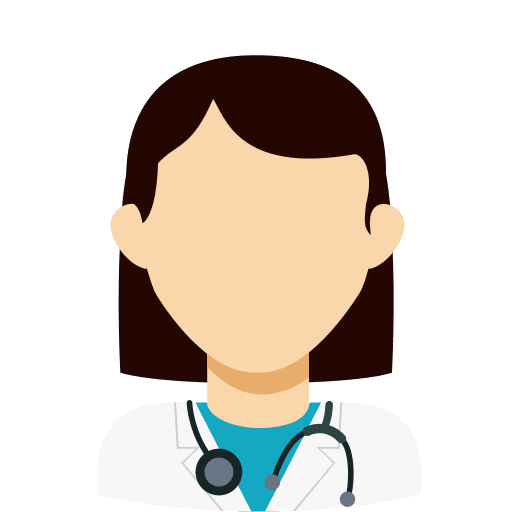Attending my shift in the ICU, I got a call in the late hours of the night. My mother told me in a panicked voice that my father had severe chest pain and that she was taking him to the hospital. My father, an ex-veteran, was a resilient man. It was no surprise to see him holding himself strong even in that situation. He was lucky to have a minor heart attack. After the initial tests and appropriate medication, the cardiologist sent him home after three days with a prescription for his heart condition. But life after a heart attack is unpredictable, and a visit to a hospital often reinforces this view.
We can never fully prepare for our loved ones’ health mishaps. I was not prepared for the after-effects of the heart attack my father went through; he was skeptical about his medicines for days after the attack, depressed about not going for golf, anxious about getting another heart attack, and edgy about almost everything.
We sat down, talked, and mapped out a plan. A heart attack is a life-changing experience in many ways for both the patient and his family. What is expected after a heart event? How do you carry on with life’s activities? How do you maintain sanity while working towards a recovery? Is recovery even possible at all? These are all the details that any heart attack survivor may be concerned with and for good reason. So should you be worried after an episode of a heart attack? Yes, but enough to lay out a plan to follow. Because surviving a heart attack gives you a chance back at life and you should make the most of it.
How To Reintegrate Back Into Life With Caution After A Heart Attack
1. Identify the warning signs
It is critical to identify the signs of a heart attack because about one in five heart attack survivors suffer another one within five years of the first attack. That makes about 335,000 recurrent heart attacks per year in the United States only. A proactive approach is required to prevent a recurrence, and timely action can save damage to the heart muscle. The signs of a heart attack in men and women are almost the same with a slight difference. These include:
- nausea or vomiting
- jaw, neck, back, or chest pain
- shortness of breath
Women may experience subtle signs and there may be no chest pain, but instead, indigestion, fainting, and extreme fatigue may precede a heart attack.
2. Follow a medication plan
It is important to appreciate that your recovery from a heart attack only starts when you get discharged. You will be prescribed medicines to regulate your blood pressure, manage cholesterol, control your heart rate as well as medicines to keep a stent open. Do not take your medicine schedule casually; if you have any questions regarding the medicines, always ask your physician.
3. Join a cardiac rehabilitation program
It helps to enroll in a cardiac rehab program after you have had a heart attack. It acts as a support group by offering guidance regarding diet and exercise and other lifestyle changes. Some rehab programs also include family members of the patient and offer assistance in the form of maintenance sessions. Such programs help ease away anxiety and depression that usually accompany the post-heart attack.
4. Make necessary lifestyle changes
You cannot continue with an unhealthy lifestyle and dietary habits and expect to maintain a good health quality, especially after a heart attack. You will need to quit smoking, adopt healthy eating habits and start a moderate exercise routine. In the case of any underlying disease condition such as diabetes, high blood pressure, thyroid ailment, you must vigilantly take your medicine to manage your condition.
5. Keep in touch with your healthcare team
Keeping in touch with your healthcare team is a significant part of your recovery protocol. You must be familiar with your go-to doctor in case of an emergency. It will take some time for your body to get adjusted to the medications and dosage schedule, communicate any side effects to make necessary dose modifications.
Frequently Asked Questions
As a doctor, I have faced many common queries by patients who are navigating life after a heart attack. These are good questions and can benefit a lot of people. Some of those questions include:
- How soon can one return to normal activities like work and exercise?
One can resume normal activities within a few days to a few weeks after a heart attack. It depends on the type of heart condition you have and your recovery speed. If your healthcare team started you on a physical activity routine, keep at it. It is important to take up moderate exercise but take it slow and build it with time. Aim to do at least 30-minute of moderate-intensity exercise on alternate days of the week.
Returning to work is also a crucial part of your physical, mental, and emotional recovery. Your healthcare team should be able to suggest to you when is appropriate, based on your specific situation. Itt depends on your recovery pace and the kind of job you have. If your job is physically demanding, then ask your employer to ease it out as much as possible. It would help if you gave yourself time to build stamina before settling back into your old work routine.
- Is it OK to drive?
Again your healthcare team should have better suggestions regarding driving again. You will need your doctor’s approval for driving and. it is crucial to take a break if you drive a commercial vehicle. Try not to drive alone and take routes that are known to you. Avoiding peak traffic hours it will make it less of a hassle if driving is absolutely necessary.
- What about sexual activity?
If you can comfortably climb two flights of stairs without shortness of breath, you can have sex without any risk. Generally, most people can have sex again soon after heart problems, but it depends on the kind of heart damage you had. In the case of open-heart surgery, let the breastbone heal before any physical exertion. Remember that it is normal to lose interest in sexual activity for a while after a heart attack. Some heart medications may cut back on the interest in sex as a side effect. If the condition persists for long enough to affect your sexual health or relationship, ask for help.
Enduring a heart attack changes many things. However, you can continue to follow your life’s routines with slight modifications for the most part. The key is to take it slow and give yourself time to recover. You did, after all, endure a huge experience.








